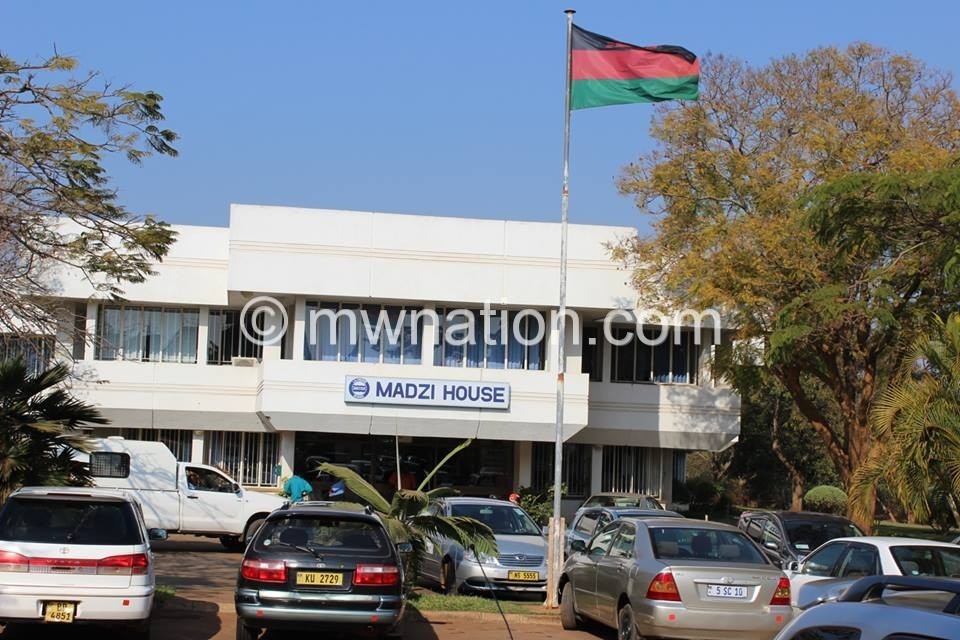Water is still too cheap—boards
Even after a recent record increase averaging 53 percent, water boards say water remains the cheapest commodity on the market.
Speaking at the second edition of government faces the press initiative on behalf of all water boards in the country, Lilongwe Water Board (LWB) chief executive officer Sili Mbewe said the price people pay for 2 litre Sobo Orange Squash can actually buy water lasting them a month.

However, the sentiments have irked the Consumers Association of Malawi (Cama) executive director John Kapito, who yesterday said it is illogical to compare the price of water, whose production is fully financed by taxpayers, to other products.
He said Cama will not accept any justification for another increase in water tariffs in the next two years.
At the briefing yesterday in Lilongwe, Minister of Forestry, Environment and Natural Resources Nancy Tembo and Minister of Information Gospel Kazako said it is not the wish of the Tonse Administration to increase water tariffs anyhow, but the situation had become inevitable because the hike was delayed previously “for fear of elections”.
Tembo said the boards are in dire financial straits, therefore, the increase in tariffs is meant to boost their financial capacity to deliver better services to Malawians.
The two ministers indicated that the boards had demanded an increase of at least 188 percent but government negotiated for an average of 53 percent so that citizens should not feel the pinch.
Said Kazako: “We wish prices were going down for we understand what it means to have an increase of this size. The boards have not been operating the way they were supposed to operate and this is why we have found ourselves in this situation.”
Mbewe and his team had come determined to convince the audience that water is cheap to justify a further hike.
Besides 200 litre drums, the team came with bottles of Sobo Orange Squash and bottled water to demonstrate how cheaper water currently is.
The LWB boss said a normal household in Lilongwe requires only about 5 000 cubic metres of water–which is equivalent to twenty-five 200-litre drums–in a month at a cost of K2 583, a figure which is almost equivalent to the price of a two litre bottle of Sobo Orange Squash.
Mbewe said this means that most households in Lilongwe could be paying bills of less than K3 000 per month, which is different from what The Nation established yesterday in random interviews in low-income areas in Lilongwe City. Eight households, living in areas 26, 49, 25 and Kawale, with families of three to five, pay between K8 000 and K20 000 monthly in water bills.
In an interview, Kapito said he is disappointed with the comparison of the price of water to that of other commodities.
He said water is life, therefore, it must be cheaper than it is now, and if anything government should be looking at ways of further subsiding the commodity.
Said Kapito: “Consumers are not stupid. Government must not take us for granted. In fact, water is supposed to be free but because we want the water boards to make something for sustainability we have accepted to pay.
“Government has a social responsibility to make water available to all for free, and they must not aim at making profits out of water.”
He said taxpayers already finance water boards with huge sums of money.
“Government gets huge loans and grants to support boards and who is paying for those loans? It is the consumer. So, already we are paying a lot to maintain boards.
“But as Cama we will not accept any tariff increase in the next two years and if government dares to do so, we will meet in the streets,” warned Kapito.
The financial performance of the country’s water boards has in recent years been deteriorating due to various factors.
Treasury figures show that BWB’s financial performance has been worsening largely due to non-implementation of cost-reflective tariffs, which had not been adjusted in the last three years, high non-revenue water due to dilapidated pipeline systems as well as high electricity costs.
As at mid-year of 2020/21 financial year, BWB registered a net loss of K4.2 billion.
Some of the water board’s financial position have worsened in part due to reduced volumes of water produced as a result of drying of water sources.





